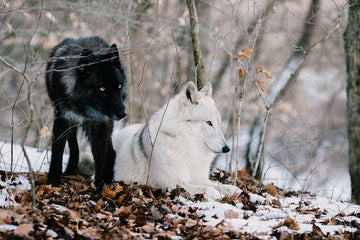Protecting our wolves: caring for animals that need protection
by Jason Hyde on Jul 01, 2021

The month of June has been an incredibly special one for the wolves of Colorado. One wolf pack saw its first pup litter in 80 years. Colorado Parks and Wildlife (CPW) announced Wednesday, June 9th that it had spotted at least three gray wolf pups in the wild.
This week’s post may come as a surprise. Why the sudden interest in wolves (besides the potential cute wolf pup pictures)? The truth is, anyone with a basic understanding of how nature works, knows by now everything has a place in nature, a role to play, a job to do, and a piece to fill.
Humans tend to disrupt the almost magical flows of nature, letting our ego think we could know better than mother nature herself.
Look at the history of wolves and humans in the United States, we have done it before, and are about to do it again.

By the end of 1945, the federal government had practically eradicated wolves from the state of Colorado. Why? To make a profit.
In the 1920s, the U.S. The Bureau of Biological Survey, funded by congressional and state appropriations, as well as county and private funds, worked to systematically trap and poison every wolf in the state on behalf of the livestock industry.
By 2019 lone wolves were seen in the area again and a newly formed pack was speculated until a few weeks ago, the new pups made the Colorado wolf pack official! And in the past November, voters approved a proposition requiring the reintroduction of wolves to begin by December 2023.
This move will assure our newly discovered pups have a chance for matting once they have matured into adults.
But not all wolf news is good news this month. Contrarily to everything written above, the States of Idaho and Montana have just passed a law permitting the killing of 90% of the wolves in those states.
Hunting laws will even allow hunters to kill nursing wolf mothers and pups in their dens. Idaho and Montana’s wolf history is not far from Colorado’s (not even geographically far). The species barely made it out of the endangered list before it was allowed to hunt them down again.
Remember Einstein said the definition of madness is doing the same thing repeatedly and expecting a different outcome.
Do we really think we can keep disrupting nature’s life cycles and not suffer the consequences? Haven’t we run out of time already and need to work with and for the environment instead of above it?





